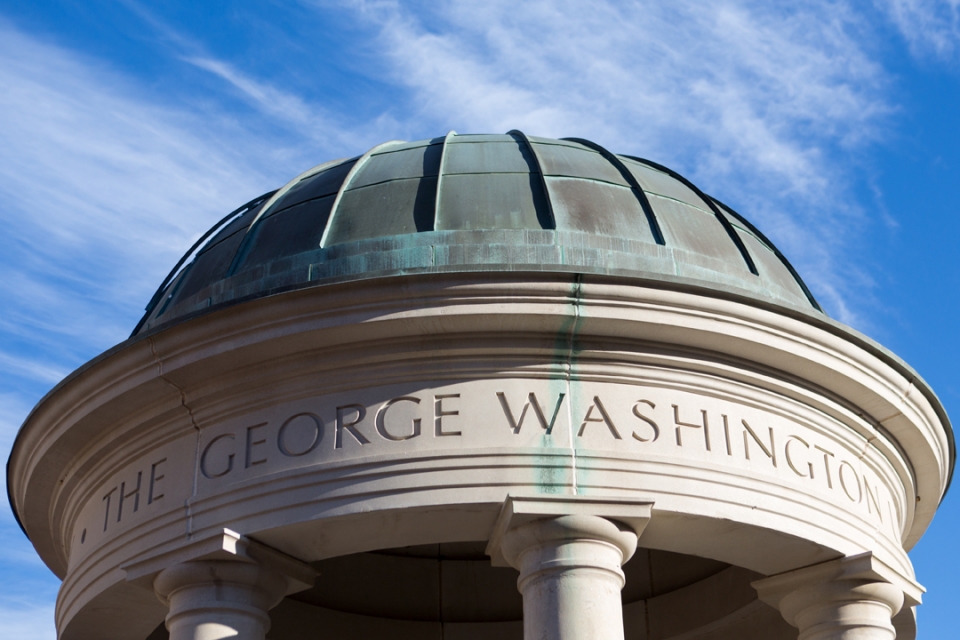The George Washington University has made significant progress in research during the past several years and is in a strong position to continue to build on those efforts, Vice President for Research Leo Chalupa told members of the Faculty Senate on Friday.
Emphasizing the importance of undergraduate research, Dr. Chalupa noted the growth of student participation in GW Research Days as well as the availability of undergraduate research awards.
“There’s a tremendous interest from our undergraduates in research,” Dr. Chalupa said.
One of the most “heartwarming” experiences during his time as vice president at GW, Dr. Chalupa said, was meeting with students who wanted to establish the GW Undergraduate Review, a new academic journal that highlights research completed by undergraduate students.
The students’ commitment to creating the journal was “stunning,” Dr. Chalupa said.
“All I did was provide the money,” he said. “I hope this will be something that will last for many, many years.”
The students will mark the launch of the journal at an event on Thursday.
Dr. Chalupa also summarized some of the most significant accomplishments the Office of the Vice President for Research has achieved in the past nine years, including expanding university funding programs, launching research institutes, establishing the research integrity office and research enhancement unit and growing innovation, entrepreneurship and technology commercialization efforts.
Research expenditures from federal sources—a key measure of an institution's research activity—also have increased, from roughly $92 million in fiscal 2006 to $143 million in fiscal 2016, Dr. Chalupa said.
The university’s ranking in the National Science Foundation’s Higher Education Research and Development survey for fiscal 2016 was 81. While the ranking for fiscal 2017 has not yet been released, Dr. Chalupa said he expects the university will advance its spot given a $5 million increase in federal expenditures for fiscal 2017.
Research will continue to be an important factor in the university’s growth, Dr. Chalupa said, adding that there is a “high correlation” between a university’s research ranking and its prestige and fundraising success.
The university last week announced that the Office of the Vice President for Research would move under the provost and executive vice president for academic affairs. The university will launch an internal search to fill the vice president for research position after Dr. Chalupa previously announced he would step down. Research remains one of the university’s five strategic initiatives.
During his remarks, President Thomas LeBlanc noted the university’s recent release of its response action plan in the wake of a racist social media post that circulated online earlier this year, and he urged faculty to continue to do their part in supporting a positive environment for all students.
Dr. LeBlanc also updated faculty on his travels to meet members of the GW community in different parts of the country, including his recent trips to Philadelphia, Los Angeles, San Francisco and Boston.
He said he has enjoyed hearing from people who, many years later, remember faculty who changed their lives or who have other stories about their positive GW experience.
“There’s a lot of support for what we’re doing out there among our alumni base,” Dr. LeBlanc said.
The senate on Friday also approved a resolution of appreciation for Executive Vice President and Treasurer Lou Katz.
Mr. Katz announced his retirement in February after nearly three decades as GW’s chief financial officer. Friday’s resolution noted Mr. Katz’s “imagination and energy during a period of substantial growth and transformation for the university.”





